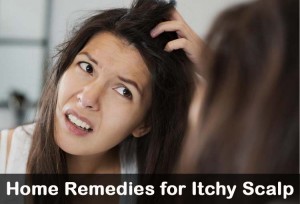 There is nothing worse than a constant urge to scratch you scalp, especially in public places. Itchy scalp can be caused due to dandruff, ringworm, poor hair care, head lice, or even by an autoimmune disease. If itchy scalp is left untreated, then it can lead to hair loss, baldness, redness, swelling and the constant scratching leads to open sores.
There is nothing worse than a constant urge to scratch you scalp, especially in public places. Itchy scalp can be caused due to dandruff, ringworm, poor hair care, head lice, or even by an autoimmune disease. If itchy scalp is left untreated, then it can lead to hair loss, baldness, redness, swelling and the constant scratching leads to open sores.
Commercial treatments include keratolytic treatments or steroids which can have serious side effects. But natural remedies like apple cider vinegar, tea tree oil or any other method mentioned below can treat itchy scalp without any side effects.
Home Remedies for Itchy Scalp
There are different ingredients that can be used to treat itchy scalp at home. For your convenience, we have assorted them below. Choose one among them as per your interest and try it regularly to get relief from itchy scalp.
1. Apple Cider Vinegar (ACV)
ACV balances scalp’s pH levels which relieves itching and creates an unhospitable environment for fungal infections. The acetic acid present in apple cider vinegar acts as natural cleanser which exfoliates the dead skin cells and other build up on the scalp.
- Rinse your hair and scalp with water and let it dry completely.
- Mix equal parts apple cider vinegar and water.
- Then pour the solution into a spray bottle
- Spray it onto your scalp
- Wrap your head with a towel or shower cap. Leave it on for 15 – 30 minutes.
- Wash off with shampoo and water.
- Repeat once or twice a week.
Note: If you can handle the strong nature of acv, then you can apply it directly to the scalp. It is better to patch test before trying out the process.
2. Tea Tree Oil
Terpinen-4-oil component present in tea tree oil contains natural antifungal, anti-inflammatory and antibacterial properties which help to treat an itchy scalp. It also helps to clear clogged hair follicles.
- Dilute 2 – 3 drops of tea tree oil in a tablespoon of vegetable oil. If you can handle the strong nature of tea tree oil, then you can use it undiluted.
- Massage on your scalp to unclog your hair follicles and get relief from itching.
- Leave it on for 1 – 2 hours and rinse your hair with mild shampoo and water.
- Regularly use this for 1-2 weeks.
Alternatively, you can use tea tree oil based shampoo or add few drops of tea tree oil into your shampoo and use it to rinse your hair.
3. Aloe Vera
Aloe vera contains anti-inflammatory, antibacterial and moisturizing properties which helps to give relief from the itchy and dryness. The enzymes present in aloe vera will removes the accumulated dead skin cells. The amino acids in aloe vera will stimulate growth of healthy tissue.
- Squeeze the gel from a fresh aloe vera leaf.
- Apply this onto your scalp.
- Leave it on for 15 – 20 minutes and then wash it off with mild shampoo and water.
- Repeat this process for 1-2 times in a week.
- Note: Purchase and use aloe vera gel if you don’t have fresh aloe vera.
4. Coconut Oil
Coconut oil acts as a barrier which keeps your scalp moisturized and reduces dryness. It has antibacterial properties which fight off the folliculitis (infection of hair follicles) and other fungal infections like ringworm on the scalp.
- Slightly warm up coconut oil and massage it onto the scalp and hair roots.
- Repeat massaging for 10 minutes.
- Using a towel or shower cap, wrap your head.
- Let the scalp absorb the oil for 2 – 3 hours or overnight.
- Rinse off with shampoo (fragrance and chemical free) and water.
- Repeat 3 times in a week.
- Alternatively: You can add few drops of coconut oil into your shampoo while washing your hair.
5. Baking Soda
Baking soda exfoliates the scalp and prevents dandruff which is caused by overactive fungi. The alkaline nature of baking soda balances the pH level and provides relief from the itchiness.
- Apply a few drops of olive oil on your scalp and rub for a few minutes.
- Mix 1 -2 tablespoons of baking soda in water.
- Apply this paste directly onto your scalp and let it soak for 10 – 15 minutes.
- Rinse with water and repeat regularly.
6. Lemon Juice
Being a natural cleaning agent and antibacterial, it removes any bacteria build up causing itchy scalp. The acidic nature of it balances the pH levels and provides relief from itching and dryness of scalp.
- Massage fresh lemon juice onto your scalp. If you have sensitive skin, then dilute it with some water or yogurt.
- Leave it on for 5 minutes before rinsing with water.
- Rinse again with one cup of water and a teaspoon of lemon juice.
- Repeat this remedy daily.
Note: If lemon juice is used consistently for a longer period of time then it may lighten your hair and stings the broken skin. It is better to use it for only a short period of time if you have dark hair.
7. Sesame Seed Oil
Sesame oil contains highly nourishing, lubricating and healing properties. Its moisturizing property locks the moisture and prevents dryness. If you have itchy scalp due to head lice then sesame oil helps in removing the head lice as well.
- Gently heat sesame seed oil.
- Apply this warm oil onto your scalp and massage gently for 10 minutes before bed.
- Wrap your head in a hot towel and leave for 10 minutes and then take it off.
- The next morning rinse your hair and scalp thoroughly with shampoo.
- Continue doing this process 2 to 3 times in a weekto prevent the itchy scalp.
8. Essential Oils
Essential oils are very effective in treating scalp ailments like dandruff, itchiness and dryness. Essential oils you can use for treating itchy scalp are – jojoba oil, argan oil, lavender oil, neem oil, peppermint oil and margosa oil.
- Massage a small amount of any essential onto your scalp for a few minutes at night.
- Leave it overnight and wash with mild shampoo the next morning.
- Continue doing this once a week.
- For more effectiveness, add few drops of essential oil into your shampoo while rinsing your hair.
Note: Avoid applying undiluted essential oils onto the scalp as it can cause burning sensation.
9. Witch Hazel
Witch hazel is a natural astringent which helps cure the itchy scalp by reducing the inflammation. It reduces the itchy scalp which is caused by hair coloring and blow drying.
- Mix one part of hazel oil with two parts of water.
- Apply the solution thoroughly on your scalp.
- Massage gently for 5 – 10 minutes.
- Rinse hair and scalp thoroughly.
- Repeat the process once in 3 – 4 days.
10. Olive Oil, Mayonnaise and Broccoli Puree
Olive oil helps to reduce the oiliness, mayonnaise helps to hydrate your scalp, clears the lice and adds shine to your hair and broccoli deeply cleanses your hair.
- Blend 1/2 cup of broccoli into a paste by adding some water.
- Combine equal amounts of olive oil, broccoli paste and mayonnaise to make a paste.
- Rub on your scalp and leave for a few minutes.
- Rinse your hair thoroughly.
- Repeat regularly.
11. Onion Juice
The antibacterial and anti-fungal properties present in onion juice provide relief from itchiness caused by dandruff and ringworm. The essential nutrients like vitamin B6 & C, potassium, magnesium, germanium and sulfur nourish your scalp.
- Grate or blend 1 – 2 onions to extract juice from it.
- Using a cotton ball or fingers, apply the onion juice on the scalp thoroughly.
- Leave it on for 30 minutes.
- Rinse off with shampoo and water.
Note: If undiluted onion juice is causing irritation or any other discomfort, then mix it with olive oil and massage into the scalp.
12. Eucalyptus Oil
The antiseptic and antifungal properties of eucalyptus oil helps in fighting off any scalp infections. It prevents any accumulation of residue and clogged pores which can cause dryness, dandruff and itchiness. It is also helpful in providing relief from mild psoriasis.
- Combine 3-4 tablespoons of white vinegar, 1 teaspoon of eucalyptus oil and 4 – 5 cups of water.
- Using this solution, rinse your hair thoroughly such that it covers the entire scalp.
- Rinse the hair with mild shampoo and water.
- Repeat regularly.
13. Mixture of Essential Oils
For this process, we will use neem oil, tea tree oil, rosemary oil, lavender oil and any other carrier oil like almond oil, olive oil, wheat germ oil or coconut oil. This mixture of essential oils provides a soothing effect to the scalp which reduces intense itchy scalp and severe itchiness that is caused by psoriasis.
- Combine 2 -3 drops of neem oil, 4 – 5 drops of tea tree oil, 2 -3 drops of rosemary oil, 1 -2 drops of lavender oil.
- Mix well and add 3 tablespoons of any carrier oil.
- Gently massage the mixture of essential oil onto the scalp.
- Leave it on for as long as you want and rinse off using mild shampoo and water.
14. Chamomile Spray
Chamomile is known to cure inflammation and many other health ailments. It also soothes the itchiness as well.
- Bring 2 cups of water to boil.
- Add a handful of chamomile flowers into it.
- Reduce the heat to low and let it simmer until the color of water changes.
- Switch off the stove and let it cool down.
- Strain and pour the solution into a clean spray bottle and refrigerate.
- Whenever you experience itchiness, spray the solution onto the scalp for quick relief.
- If you don’t have a spray bottle handy, then you apply the solution using a cotton ball.
- Repeat the application whenever you need it.
15. Oatmeal
The moisturizing and nourishing properties of oatmeal lock the moisture to prevent and treat itchiness and dryness of the scalp.
- Combine 1 tablespoon each of oats, raw milk and almond oil.
- Brush your hair to remove any knots.
- Apply the mixture onto scalp and along the hair.
- Leave it on for 20 to 30 minutes.
- Rinse off with shampoo and water.
- Repeat 2 -3 times in a week.
16. Juniper Berry
- Bring 2 cups of water to boil and remove from the flame.
- Add 1/2 cup of juniper berries (crushed) into it.
- Stir well and let it cool down to a temperature that your scalp can tolerate.
- Apply it on the scalp thoroughly.
- Let it rest for 10 minutes and rinse off with water.
17. Bay Leaves
- Bring 2 cups of water to boil and remove from the flame.
- Add 1/2 teaspoon of crushed bay leaves into the hot water.
- Leave it to steep for 30 minutes.
- Strain it and apply the solution onto the scalp.
- Leave it on for 30 minutes and rinse off.
- Repeat the process regularly.
- Note: Wash your hair thoroughly before trying this remedy for effective results.
18. Fenugreek Leaves
- Combine 1 tablespoon of fenugreek seeds in some water and let it soak overnight.
- Grind the soaked fenugreek seeds with some lemon juice.
- Apply the paste onto the scalp.
- Leave it for an hour and rinse off.
- Repeat 2 times in a week.
Things to Remember:
It is always important to make few changes in regular life to prevent or reduce itchiness of the scalp. Here is an assortment of few changes.
- Switch your hair products regularly: If used for a longer period of time, some stubborn chemicals in the products get accumulated on the scalp no matter how effectively you rinse your hair. If your scalp is too sensitive, it is better to choose any baby shampoo as it is very mild and doesn’t cause any problem to the scalp.
- Opt for chemical and alcohol free hair care solutions: Shampoo that contains alcohol and chemicals like SLS (sodium lauryl sulphate), alcohol and other harmful chemicals can remove the natural oils and affect the natural pH balance. So, make sure to check the ingredients list present behind the shampoo before buying it.
- After each wash, make sure to dry your hair properly: Moist environments and damp hair are breeding grounds for microbes which can lead to fungal infection. So, it is recommended to dry your hair after every wash.
- Comb your hair: Combing your hair improves the blood circulation and natural oils gets distributed which results in healthy hair and scalp as well.
- Avoid Scalp Sunburn: Cover your head with a cap, scarf or umbrella when you are going out in the sun to avoid sunburn which causes itching, irritation and other discomforts.
- Be head lice free: Head lice can also cause itchy scalp. Take enough measures to remove any head lice infestation, if you notice any lice or lice eggs. There are many natural remedies for treating head lice.
- Keep an eye on your food: Poor nutrition can also lead to dandruff, itchiness and other scalp problems. Include foods rich in vitamin A, B, E and C, zinc and omega fatty acids.
- Drink plenty of water: Keeping yourself hydrated is very important. Lack of water in the body can lead to dry skin and scalp. Drink 8 – 10 glasses of water daily.
- Reduce Your Stress Levels: Increased stress levels can lead to itchy scalp and hair loss. So, it is very important to reduce your stress levels. Yoga, meditation, aerobics, deep breathing, swimming, walking, swimming, gardening or developing a new hobby can be helpful in reducing stress levels.
- Oil Massage: Warm oil provides extra moisturization to the scalp and hair. As it absorbed much effectively, it can increase the blood circulation which leads to a healthy scalp.
- Avoid hot water for rinsing your hair: Rinsing your hair with hot water will strip away the moisture from the scalp and hair. Thus it leads to itchy and dry scalp. If you cannot wash your hair with cool water, then opt for lukewarm water to rinse your hair.
- Maintain basic hygiene: If you are regularly suffering from itchy scalp then just washing your hair is not enough. Washing your bedsheets, pillow covers and brushes also helps to reduce the scalp infections that cause itching.
- Avoid over washing your hair: Over washing or over use of shampoo can strip away the natural oils from the scalp which ultimately lead to itchy and dry scalp. On an average, wash your hair 2 – 3 times in a week. If you work out daily, then rinse with warm water daily and shampoo only 2 – 3 times in a week.
- Stay away from Foods That Help Yeast Growth: Sometimes, persistent itching can be caused to yeast infestation (a type of fungus). Just treating the scalp is not enough to get rid of the infestation completely. It has to be treated from inside. Sugar, alcohol, refined carbohydrates like paste or white bread, mushrooms, peanuts and vinegar encourage yeast infection. Restricting your diet from these foods helps your body to get rid of yeast naturally.
Did you find this article helpful? Do you have any other remedies that work well in treating itchy scalp? Share your experience, suggestions and queries in the comments section below. For more such articles, stay tuned…
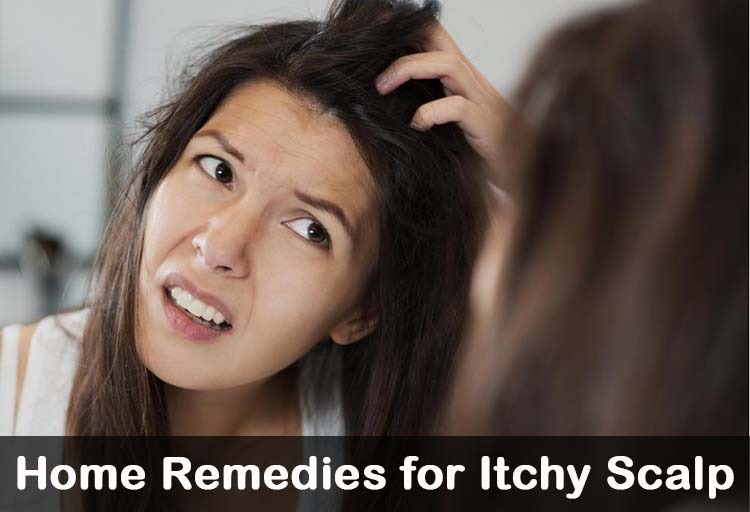
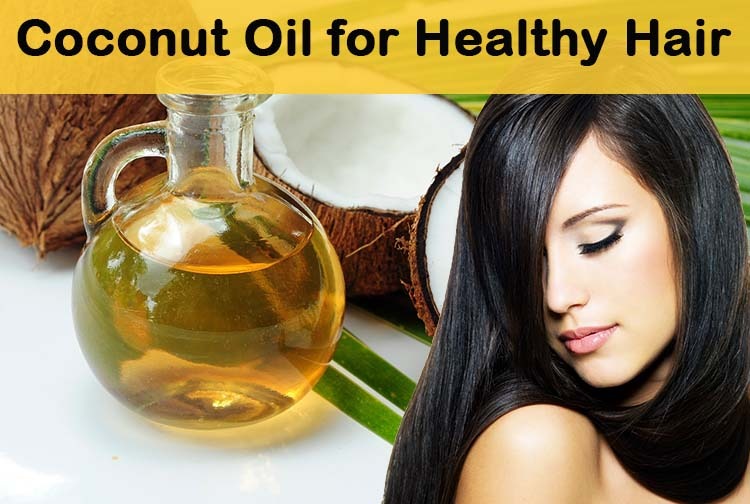
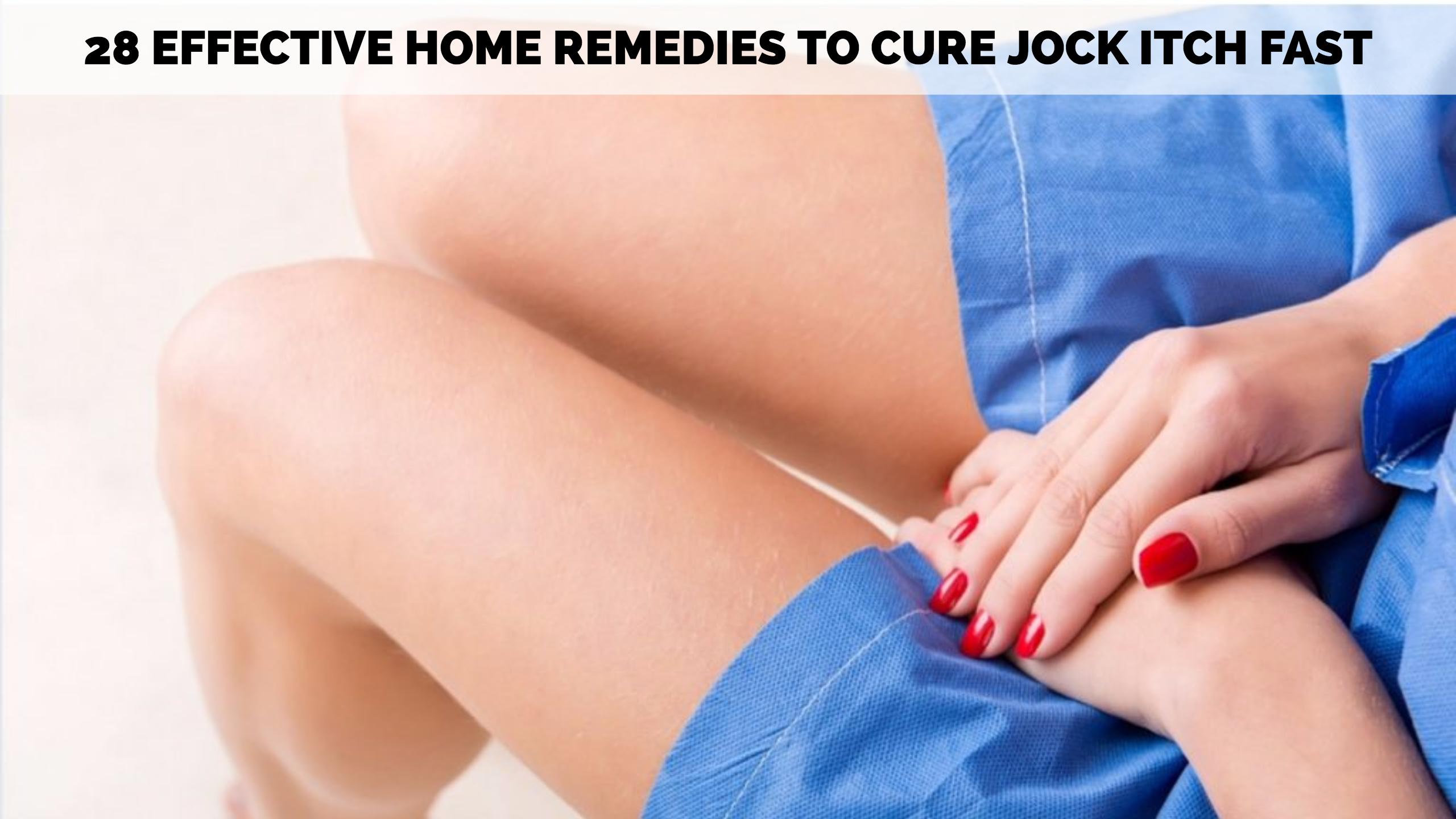

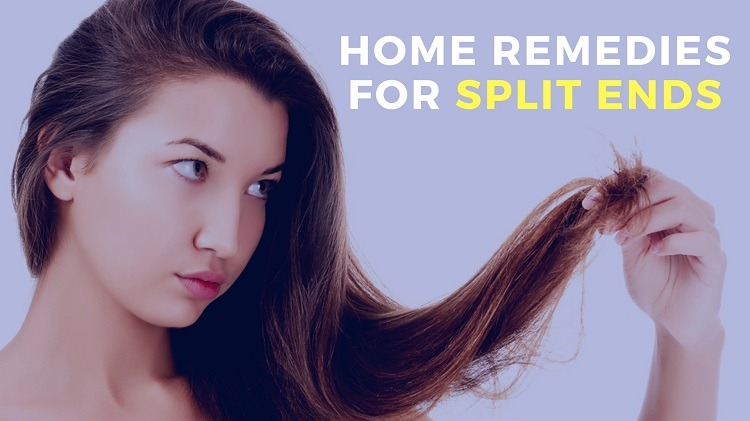
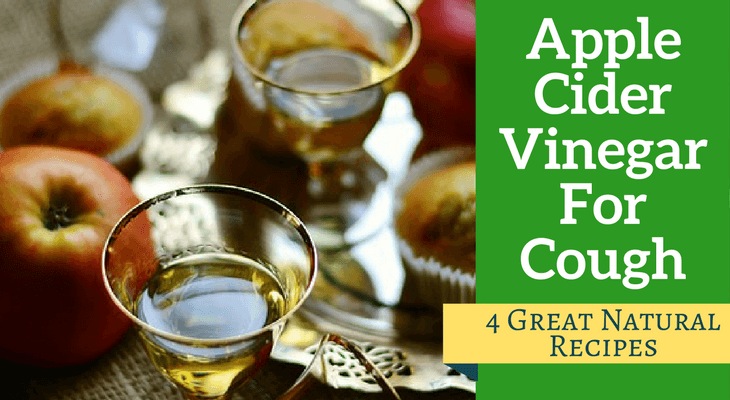


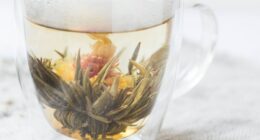

34 comments
I can understand that how itchy scalps embarrassing for anyone. Thanks for the info of its causes and useful treatments. I would like to recommend Emsibeth’s Thermal treatment to get rid of this embarrassing problem. The Thermal Equilibrium thermal treatment rebalances the skin’s pH and reactivates the physiological defense mechanisms. This is an ideal treatment for itching, swelling and redness.
for #10-what is hazel oil?
Witch hazel comes in the same type of bottle like rubbing alcohol and peroxide. It’s located right next to it in the pharmacy or walmart.
Thank you so much. I have SEVERE itchy scalp. I mixed Acv with lemon Juice and water then massaged onto my scalp then wrap my hair in a towel for an hour. AMAZING. I then rinsed with conditioner and water and I was in “no itch” heaven. Thanksssssssss
We are happy to hear your experience. Keep visiting our website.
My 8yo is sooooo aeverly itchy its Been embarrassing to let her go to friends she itches so bad. Guess I will try this now. Do u add any water or just straight??!
Ok just read AFTER the fact I just forgot water hope it’s not too strong. Her hair wrapped up and watching a movie, praying this helps
My son is 15 and his scale is always itchy he doesn’t have bugs or dandruff what can I do for him
Check if the chemicals in shampoo are causing irritation on the scalp. Try to use natural shampoos i.e. soapnuts etc. Apart from using the above methods, you can follow these tips.
– Drink plenty water to keep your scalp hydrated.
– Use warm oil massages to prevent dryness of the scalp.
– Reduce stress levels.
– Don’t scratch the scalp as it can worsen the condition.
I have itchy scalp with dandruff since last 8 months and having hair fall also every day 80 to 100 strands fall.I have silky and straight hair now there is no bounce in my hair. Please suggest something not getting benefit of shampoos and oil.. I do shampoo and every second of day. Also people say that we shouldn’t oil if we have dandruff
I
Try 1, 3, 6, or 8 remedies mentioned above in the article. Apart from that drink plenty of water to keep your skin hydrated, take vitamin E supplements, wash your bed sheets and pillows regularly and reduce stress levels.
Are you taking anything for acid reflux , heartburn or stomach issues? For some people those can cause malnutrition causing your hair shed a lot. It lasts for about 2 months after you stop taking them..
I tried the banana method this morning since i had bananas and an avocado laying around and it’s bullshit-honestly even if it will cure my scalp IT IS NOT WORTH IT!!!!!!As i said i tried it this morning and i still have small disgusting pieces of banana stuck in my hair-Thank god i have short hair but seriously it is not worth the hassle of taking this shit out of my hair!!!! DO NOT TRY THE BANANA-AVOCADO METHOD IT’S HORRIBLE!!!! U should put a ‘warning’ label on the bottom saying “warning-this method will take AGES to take out of your hair and may pontentially ruin it aswell (winky face)”and i am not affending the writer or anything i’m just putting a comment saying to not try this method.
I will try the other methods as they seem to work better on other people
I have many little pimple like scar in head n very itching from days .pls tell me reason
It is better to consult a doctor for visual inspection. It helps to find out the exact reason behind the problem. Once the problem is known you can find the solution according to it.
My scalp is itchy..i feel something runing on my scalp…i dont have lice…
When i get itching my eyes also gts itchy
As per your discussion, it is better to consult your doctor to get diagnosed. This way you can know the correct problem and take the treatment according to it.
Just an fyi, some of us are allergic to our own perspiration. Not only all areas of normal perspiration as under arms, pressure points at bra lines, panty lines but also for those of us who sweat at our scalp. I had never thought about this until my mother mentioned that my father was allergic to his own perspiration. If I get hot and sweaty my scalp itches as well as my under arms and pressure points resulting in need of an immediate shower and shampooing of my hair. Some people do not think about this but if you have allergies it’s quite possible.
Terri, thanks so much for your comment! I overheat easily, my whole scalp sweats, and then comes the excruciating itching. I have been saying for years I was allergic to my own perspiration. It is nice to know I not just crazy. I am looking for something that will give immediate relief when I am out & about. I just tried Scalpicin which usually helps. Not this time.
Any ideas will be appreciated.
Sorry to be late to suggest something but perspiration is a method the body uses to expel toxins. Something in your diet is creating a severe stressful reaction that your body is trying to neutralize. It could be many things – but usually something you really love and have almost daily – like coffee, milk, white flour, high fructose corn syrup, white sugar, beer or wine. I found out I had to give up all dairy other than homemade yogurt. Was hard to do but problem solved after 1 month. Good luck to you.
Can these be used for synthetic dreads? Does anyone know?
No it cannot be.
I have had a dry scalp for about a month and I have try many different shampoos and the still won’t work please help me
For remedies related to dry scalp, you can read them in this article – http://wellness.guide/dry-scalp/
i have a itchy scalpall the time could this be due to having a under active thyroid if so what would be best treatment
Underactive thyroid is one of the root problems for itchy scalp. You can follow any remedy mentioned in the article for controlling the symptoms. But in order to treat the root cause, you have to cure underactive thyroid. For this you have to increase protein, good fats, iron, zinc, copper, vitamin D, iodine content in your food. Address the adrenal fatigue by exercising and meditating.
Can Listerine be used to cure a fungus on the scalp since it is an antiseptic?
Yes, it can be helpful.
should i blend the broccoli before mixing it with mayonnaise and olive oil to make a paste? and should they be in the same proportion?
Initially, you have to blend 1/2 cup of broccoli into paste (you can add some water to get the consistency). Now combine equal amounts of olive oil, broccoli paste and mayonnaise. Massage the mixture onto the scalp and leave it on for few minutes. Rinse off with water and pat dry. You have to repeat the process regularly to achieve the results.
The only thing that works for my itchy scalp is a mask of banana, honey a a teaspoon of cinnamon. I also throw a spoonful of olive oil (I tried avocado, but my blender won’t blend the avocado well) and a few drops of rosemary or peppermint essential oil. Once applied, I wait about 3 hours, enjoying the relief and then wash it out. Mind you, it’s very tough to wash it out. Sometimes it takes a few rinses with cool water. But the result is unbelievable! Thanks to whoever posted this banana/honey/avocado recipe on the web (even though I now replace the avocado with a spoon of olive oil). I don’t even remember where I saw it first. You saved my life!!!!
My daughter is having a very itchy scalp after using hair spray once. Which home remedy would you suggest?
My scalp just started to itch after it was colored. The first time it lasted about one week and the second time it lasted over two weeks. I am 75 years old and have been coloring my hair since I was 35. Help.
Would flaxseed oil be an acceptable alternative ?